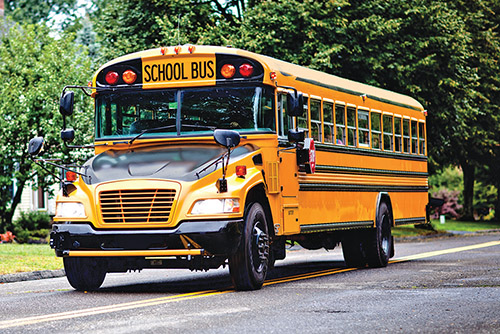
New Jersey State law mandates that families sending children to non-public schools who live a minimum of two miles from elementary school and two and a half miles from high school, and travel no more than 20 miles within state lines, qualify for free busing. In the event that a school district is unable to provide transportation for a non-public school student between home and school, the district is required to provide the student’s parent or guardian with aid in lieu of transportation in the amount of $1,000 per pupil.
Because of COVID-19, schools were forced to close in mid-March, terminating bus service for the remainder of the academic year. Based on Governor Phil Murphy’s Executive Order 103, the commissioner of education reinterpreted the transportation law, stating that payment of aid in lieu of transportation may be adjusted for any school year for which transportation was unnecessary due to the closure of school buildings resulting from COVID-19-related concerns. Subsequently, the school districts announced that they will be prorating the transportation aid allocated for the remainder of the school year, reimbursing only for the months that school was opened.
For parents who contract private bus companies to transport kids to private schools, this announcement was concerning. According to Teaneck resident David Siegel, who commissioned a bus in advance to take his daughter to Bruriah High School in Elizabeth, the Department of Education decided to prorate the aid and are justifying it based on a new interpretation of the law. This ruling will hurt families throughout the state, said Siegel, who claims the decision was not well thought out. “We were promised $1,000 and we deserve to get it,” he added.
The Jewish Link reached out to Senator Loretta Weinberg who believes that this is a temporary amendment to the bus reimbursement regulation and thinks that prorating reimbursement based on the months a student traveled to school seems justifiable.
“It would only be fair for the private bus company hired to do the same and refund the money for the months they did not transport children to school,” Weinberg said.
She added that it doesn’t seem fair to ask the taxpayers of Teaneck to return money that has been paid to the private bus company, suggesting that during this unprecedented time there are a lot of inequities, many of which she hopes can be addressed under the parameters provided by Governor Murphy’s executive order.
Siegel says it is unconscionable to expect bus companies to return the money as they themselves are struggling during these challenging times. Other than saving money on fuel, Siegel believes the bus companies have incurred most of their normal expenses and rightfully deserve to keep the money they collected based on the contract signed before the start of the school year.
“When we contract a bus company, we understand that they are dedicating their operations to us and expect to be paid,” said Siegel, who believes that it’s not the bus company who is at fault since they provided the promised services as long as they were allowed to. The accountability does not lie with the school districts either, he explained, and added that the decision to prorate the money was made at the state level.
“The resolution to prorate transportation aid does not comply with the state law and reinterpreting it retroactively is disreputable,” said Siegel. With this new ruling, parents will lose a third of the aid they should have gotten and there is a possibility of losing more money going forward.
Families living in Bergen County who send their kids to yeshiva forego most of their taxpayer benefits reserved for the educational budget. Transportation aid was a drop in the bucket and now they feel that that too is being taken away, retroactively.
With the possibility of a resurgence of COVID-19 in the fall, many parents are wondering if it makes sense to contract a bus company and risk losing even more money going forward. Siegel believes legislative action is required to eliminate the indecision they are facing while planning for the upcoming academic year.









